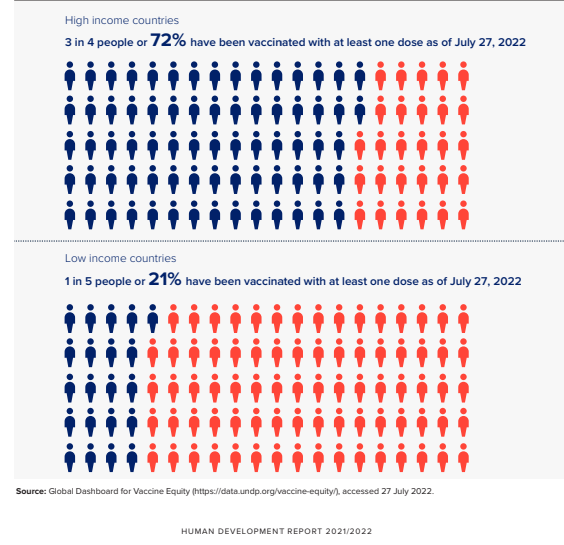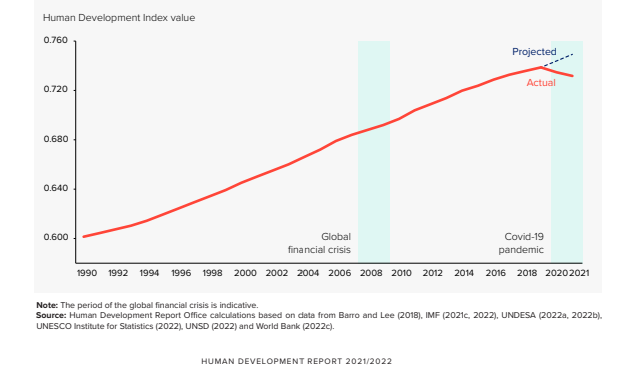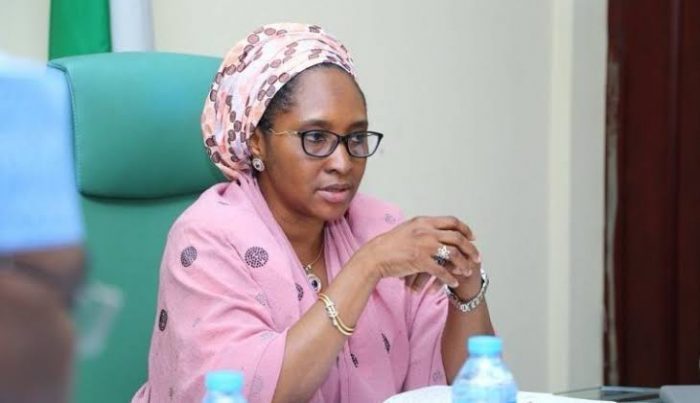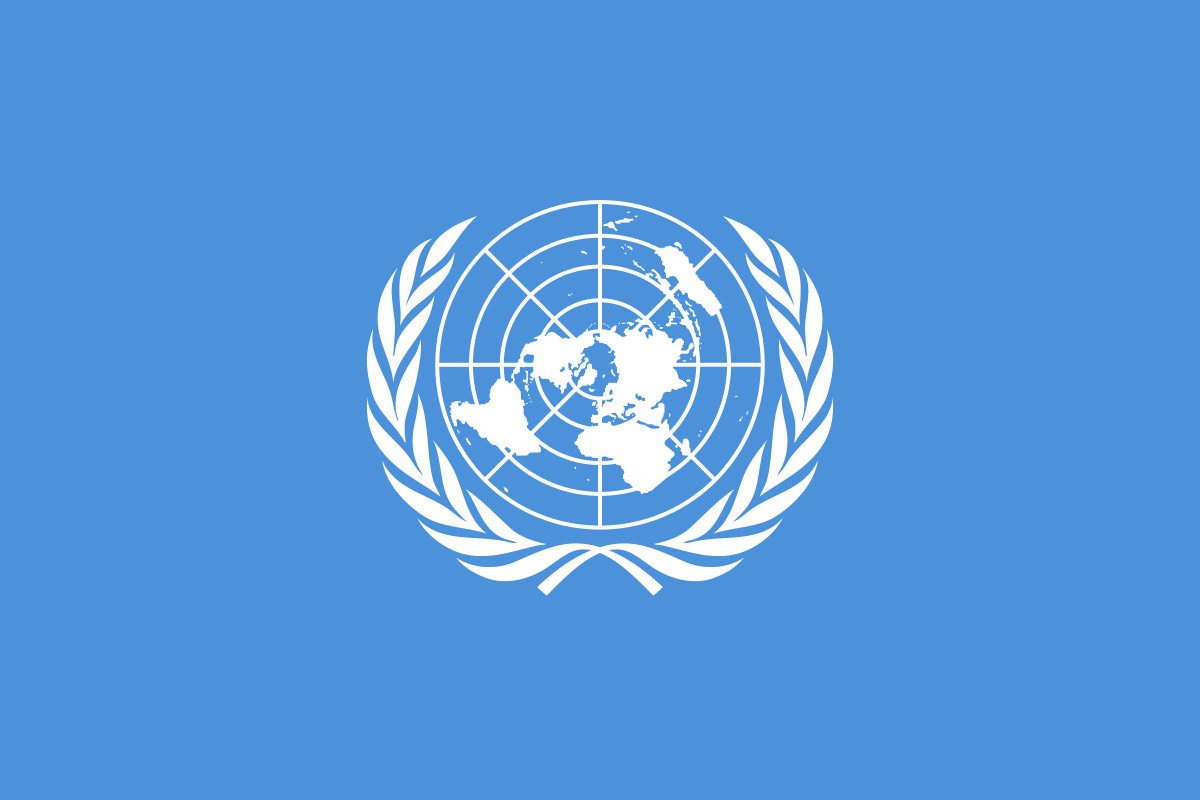The Covid pandemic, compounded by the Russia-Ukraine war and other crises, have reversed progress of the Sustainable Development Goals and pushed global development back to its 2016 level, according to UN Development Program report.
The lastest Human Development Index (HDI) report, “Uncertain Times, Unsettled Lives: Shaping our Future in a Transforming World”, launched today by the United Nations Development Programme (UNDP), argues that as the world lurches from crisis to crisis, layers of uncertainty are stacking up and interacting to unsettle life in unprecedented ways.
For the first time in 32 years, the report which measures a nation’s health, education, and standard of living, has declined globally for two years in a row, as over 90 per cent of countries registered a decline in their HDI score in either 2020 or 2021 and more than 40 per cent declined in both years.
“Without a sharp change of course, we may be heading towards even more deprivations and injustices,” the UNDP Warned.

The reported noted that while some countries are beginning to get back on their feet, recovery is uneven and partial, further widening inequalities in human development – Latin America, the Caribbean, Sub-Saharan Africa and South Asia have been hit particularly hard.
“The world is scrambling to respond to back-to-back crises. We have seen with the cost of living and energy crises that, while it is tempting to focus on quick fixes like subsidizing fossil fuels, immediate relief tactics are delaying the long-term systemic changes we must make,” says Achim Steiner, UNDP Administrator.
Steiner noted that insecurity and polarization were preventing collective action needed to tackle these crises and called for a renewed sense of global solidarity, to address the interconnected, common challenges.

A drop in Global Human Development Index value, two years in a row for the first time on record.
“This thought-provoking new analysis aims to help us break this impasse and chart a new course out of our current global uncertainty. We have a narrow window to re-boot our systems and secure a future built on decisive climate action and new opportunities for all, ” he added.
To chart a new course, the report recommends harnessing technology and implementing policies that focus on investment, from renewable energy to preparedness for pandemics, and insurance, including social protection, to prepare our societies for the ups and downs of an uncertain world.
“To navigate uncertainty, we need to double down on human development and look beyond improving people’s wealth or health,” says UNDP’s Pedro Conceição, the report’s lead author.
He added, “These remain important. But we also need to protect the planet and provide people with the tools they need to feel more secure, regain a sense of control over their lives and have hope for the future.”
The HDI report, is the third and final installment in a trilogy of reports including the 2019 report on inequalities and the 2020 report on the risks of the Anthropocene.


